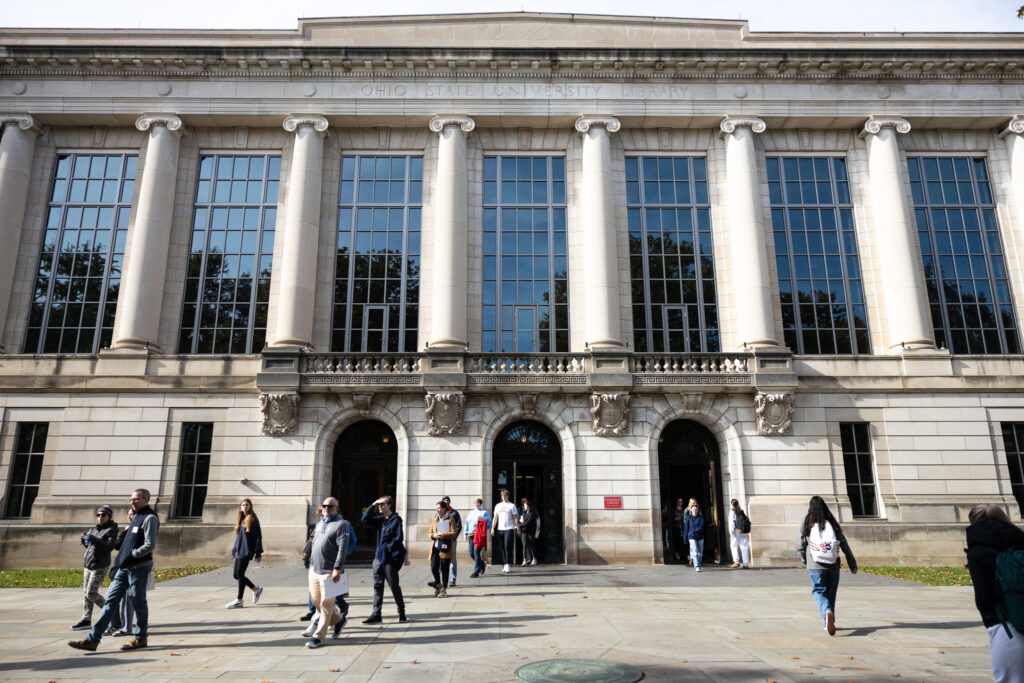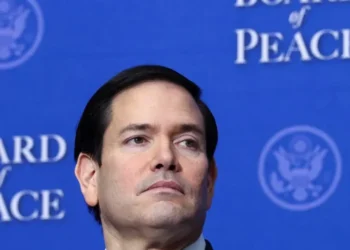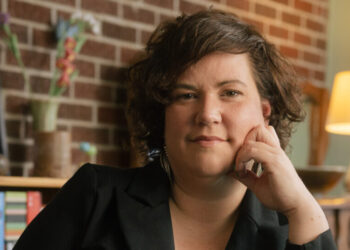High school seniors completing college applications confront a smorgasbord of choices. Herewith, eight suggestions:
Arizona State University, because of its School of Civic and Economic Thought and Leadership. University of Florida, because of its Hamilton School for Classical and Civic Education. Florida State University because of its Institute for Governance and Civics. The University of Texas, because of its School of Civic Leadership, and Civitas Institute. The University of Tennessee, because of its Institute of American Civics. The University of North Carolina because of its School of Civic Life and Leadership. The University of Mississippi because of its Declaration of Independence Center for the Study of American Freedom.
And The Ohio State University, because of its new Salmon P. Chase Center for Civics, Culture, and Society. These eight, with similar programs gestating in other states, are reviving universities’ civic seriousness, that is reinvigorating the humanities, inspiring students eager to grapple with big questions, and reversing academia’s forfeiture of its prestige.
All eight share the Chase Center’s conviction that “American citizenship is a high calling.” And that “citizenship well-lived” must be grounded in “the historical ideas, traditions, and texts” — the Federalist, Supreme Court cases, consequential rhetoric, etc. — that have shaped America’s polity and society.
Such programs are usually prompted by state legislatures, which, although occasionally clumsy and overreaching, are less threatening to academic freedom than are today’s campus monocultures enforced by censorious faculty factions. Such programs have inexpungable political resonances, so planting them in the groves of academe requires delicate tenacity.
The planting presupposes that the nation’s intellectual patrimony is worthy. Nowadays this is controversial. But the Chase Center and kindred programs operate on the assumption that “progressive patriotism” is not an oxymoron. Furthermore, civics programs often provide courses (e.g., military and diplomatic history, and political theory) that other departments ignore, such as courses on the American Revolution, and American intellectual history.
Many academics seem mystified about the 20-plus year decline of humanities majors. William Inboden believes curricula pertinent to civic thought, but nowadays largely neglected, can “re-set the demand signals in the academic marketplace” for courses and for specialized faculty to teach them.
Former Arizona governor Doug Ducey, who oversaw the 2017 birth of ASU’s program, helped to ignite this movement. Inboden has spread the movement’s gospel (literally, “good news”) through good works at two universities. He left the University of Texas to assist the flourishing of Florida’s Hamilton School, then returned to Texas as provost. The Hamilton School, which has its own majors, degrees, and tenured faculty, is not an agency of “counter-indoctrination,” it is a small cluster of liberal arts excellence. It leavens the educational menu for a small (about 1,500) but intellectually thirsty fraction of Florida’s 40,000 undergraduates eager to study the Western civilization of which our nation is an emanation and elevation.
Writing in National Affairs, Inboden notes that universities should be conservators and transmitters of the best that has been thought and said. Therefore they have an inescapably conservative function that is the essence of universities’ “social contract with American society.” The rupture of that contract included Yale’s 1995 rejection of a $20 million gift because it was designated for studying Western civilization.
Students, Inboden says, have been voting with their feet, walking away from the sterile humanities dogma that identity (racial, ethnic, sexual) is the decisive dimension of human identity. This idea, which discounts the history-making role of ideas, yields, Inboden says, an “impoverished view of the human person, the communities we form, and the endeavors we undertake.”
No wonder disappointed students and dismayed scholars are flocking to places like Hamilton. It had more than 2,000 applicants for the first 55 faculty positions it filled, and in one year hired four Harvard and four Cambridge PhDs.
Ohio State’s Chase Center advances the 21st century renaissance of civic education by invoking Salmon P. Chase, President Lincoln’s treasury secretary, then chief justice of the Supreme Court. He lived a life of 19th-century usefulness and heartbreak: Implacably anti-slavery, he lost three wives and four of his six children to diseases. Ohio State is a land grant university spawned by legislation signed by Lincoln, the 1862 Morrill Act.
Long ago, a droll president of the University of Oklahoma vowed to make OU an institution its football team could be proud of. Ohio State — a top 15 research university in a National Science Foundation survey, ranked ahead of Harvard and Yale, and decent at football — is such a place, and becoming even better because of the Chase Center.
The post These universities are reviving higher eduction’s civic seriousness appeared first on Washington Post.




